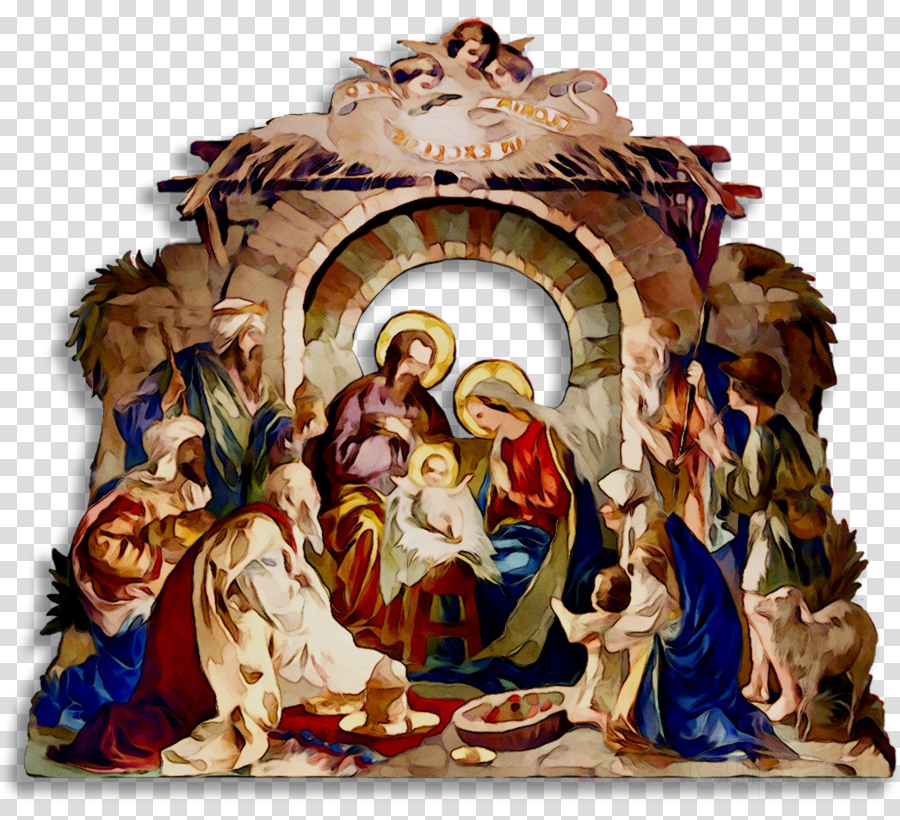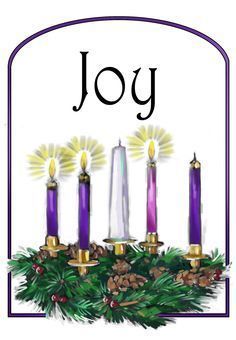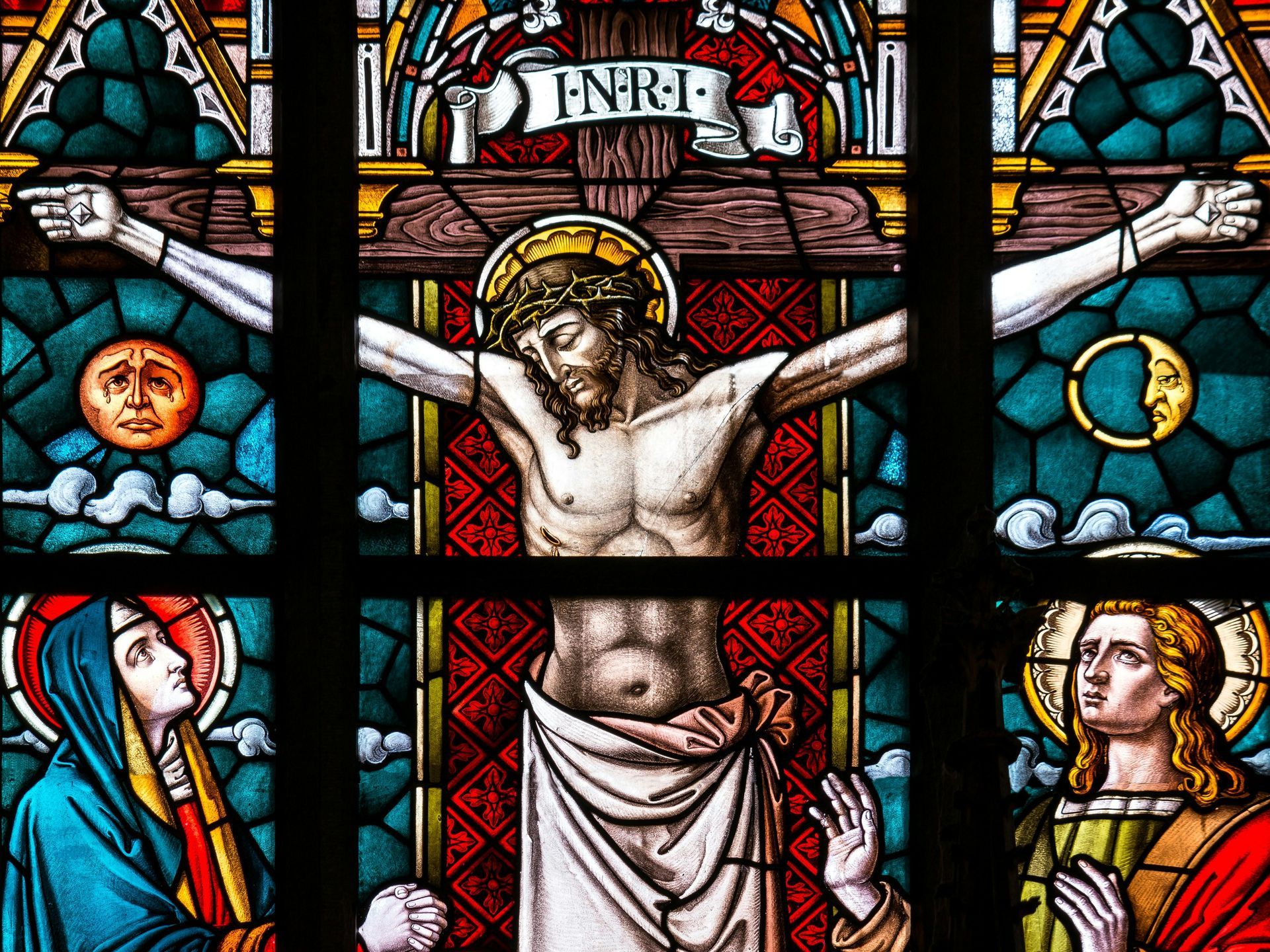The family of the Church exists also as the Communion of Saints in heaven
by Scott Hahn, OSV Newsweekly
The Church is a mother, a teacher and a family. We know this from Scripture, both the Old Testament and the New. The people of God are a household, a clan, a tribe. We have a familial form. Each of us stands in relation to the whole as a child to his mother.
The motif is so common in the Bible that it should lead us to ask: How real is it? Is it a metaphor, or is it more than that? Is it a mystery that opens us to something greater?
In baptism we are born again, and in the Eucharist we are fed. Thus, the Church does what a mother does: She gives birth and she feeds her children from her own substance.
In baptism, we join the assembly of those “who have been sanctified in Christ Jesus, called to be holy” (1 Cor 1:2). St. Paul continues that we are “called to be holy, with all those everywhere who call upon the name of our Lord Jesus Christ” (1 Cor 1:2).
“Sainthood” — sanctity, holiness — is our family name, our family identity and our family resemblance.
We live in a vast community with “all those everywhere” who share our calling. St. Paul addressed the Colossians as “holy ones and faithful brothers in Christ” (Col 1:2) — and he noted that he had heard of the love they had “for all the holy ones” (Col 1:4), meaning those who live not only in Colossae, but everywhere else on earth. And then the apostle went a step further. He went on to give “thanks to the Father, who has made you fit to share in the inheritance of the holy ones in light” (Col 1:12).
By “holy ones in light,” St. Paul could only mean the “saints” who had already died and now knew God’s glory in its fullness.
Our family — our Church — is not simply an earthly phenomenon, not just a fancy title for the Sunday congregation. It is at once earthly and heavenly. As the Letter to the Colossians shows us, it is an “inheritance” we already “share” with those who are already enjoying it for all it’s worth. We are family.
The New Testament consistently testifies to this bond between believers alive on earth and those who are more alive in heaven. We are mistaken, in a sense, when we refer to them as “the dead.” Their bodies may have died, but their souls live in Christ; and they are, in fact, more alive than we are, because nothing obstructs them from God. They are now “in light.” “At present we see indistinctly, as in a mirror, but then face to face. At present I know partially; then I shall know fully, even as I am fully known” (1 Cor 13:12).
We are participants together. Thus, none of us lives merely alone with God. Together, as the Church, we bear God, bear Christ, bear the temple and bear all holy things. Christ did not come to create a loose association of individuals, each of them living faith as a relationship between “just me and Jesus.” Christ gave us the Church as a mother, and as a mother the Church still bears him — as “the firstborn among many brothers” (Rom 8:29).
This is the stuff of family life. The Church is a communion of saints, and that means it is a family first of all.
To be in God’s family is the deepest meaning of sainthood, and it’s the deepest meaning of salvation. For the two words are functional equivalents. Only saints are saved; and only the saved are saints.
Sainthood does not mean sinlessness. It means, however, that we’re working on the problem, and in a serious way. Pope Francis began his pontificate by urging: “Let us not forget this: God never wearies of forgiving us, never! ... The problem is that we grow weary, we do not want to, we tire of asking for forgiveness.” As Blessed Mother Teresa of Kolkata often said: saints are sinners who never give up.
Through the lives of the saints — through our lives — holiness touches upon all the things of the earth. “Behold,” Jesus said, “I make all things new” (Rv 21:5). He does this through our touch — yours and mine — through the touch of the saints who live in him — the saints who live in his family.
Scott Hahn is a professor of biblical theology at Franciscan University and is the founder and president of the St. Paul Center for Biblical Theolog
This content comes to you from Our Sunday Visitor courtesy of your parish or diocese.







